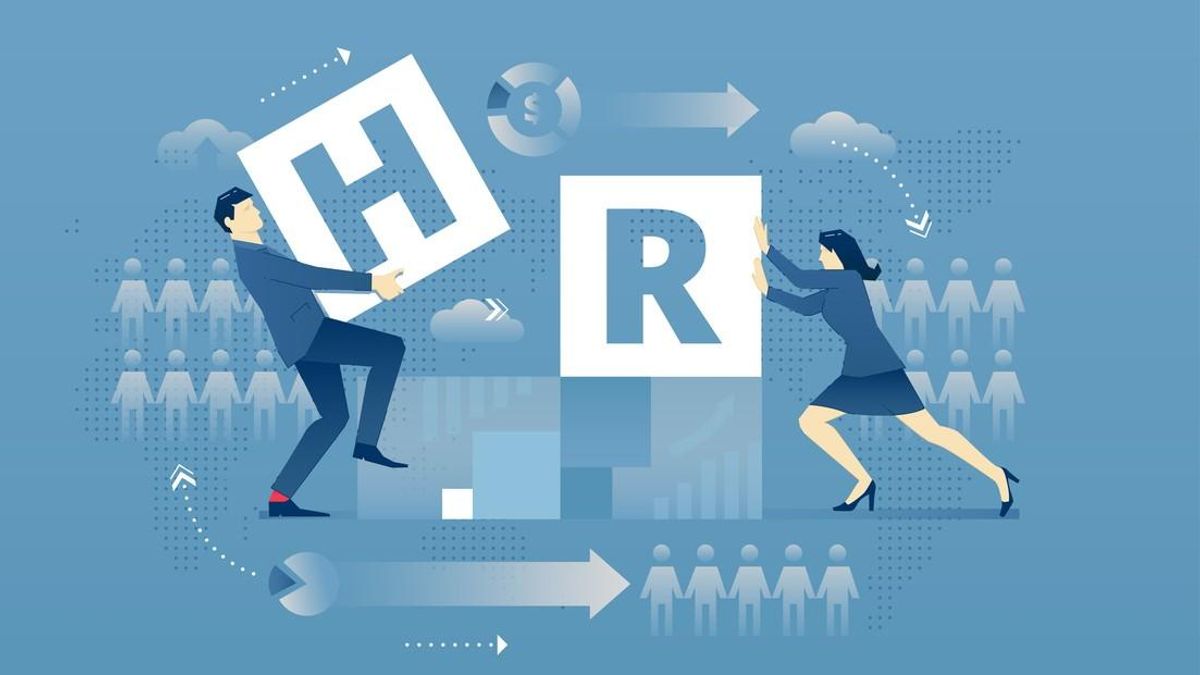
Foster a Culture of Forgiveness in the Workplace, and Watch Employees Grow and Thrive
By JC Serrano
Every business decision costs time, money, and opportunities. While CEOs and other business leaders have their strategies, theirs are not the only decisions that contribute to how a company performs.
Entry-level employees also make everyday decisions that cumulatively affect the overall performance of the company. Whether it’s choosing which task to prioritize or which words to use when speaking to customers or coworkers, a single employee can have an impact on a business. So, what happens when an employee makes a mistake?
Why punishments seem necessary
For the most part, companies shouldn’t care about what their employees do outside of work. It is also technically not necessary for coworkers to be close friends with each other. People within a company are going to have beliefs and experiences that contradict each other, and the only thing an HR department can do is find ways to manage any potential friction in the office.
However, simple rifts can easily devolve into poor teamwork, bad moods, and other distractions. It’s possible for two coworkers who can’t see eye-to-eye to sacrifice the quality of collaborative projects to avoid each other. Personal problems can also be exacerbated by bad working relationships, leading to burnout and reduced productivity.
A frustrated employee who has direct contact with customers can also have an negative impact on your company. A bout of carelessness in a restaurant kitchen or a poorly worded response to a rude customer can all cause problems.
And that's what salary deductions, suspensions, reassignments, and firings are for. “Teaching someone a lesson” seems like an excellent preventive measure to avoid these problems. But what happens to a business when it fails to create a culture of forgiveness in the workplace?
Why “forgiveness” is better in the long run
In theory, the stricter your rules and the harsher your punishments, the less likely there will be mistakes, right?
A study published by the Journal of Business Ethics argues that employees, by human nature, prefer to make their own decisions. To make way for these decisions, they have to be allowed to make mistakes. Allowing your employees to think for themselves gives them room to come up with their own personalized methods of doing tasks. Not everyone thinks, feels, and processes work the exact same way, and a culture of forgiveness in the workplace allows employees to make mistakes but learn from them.
This isn’t to say that you should shrug off every single mistake—some can be serious hazards to a business. Rather, there should be room to consider the cause of a mistake and how it affects your employee before handing out penalties.
More articles from AllBusiness.com:
- Plan to Fail: Successful Business Planning Starts with Failure
- 10 Remote Employee Onboarding Tips to Help New Hires Succeed
- Want to Increase Customer Engagement? Increase Employee Engagement First
- The Key to Happy Customers? Take Good Care of Your Employees
- How to Build a Customer-Pleasing Team
3 ways to foster forgiveness in the workplace
1. Offer an “encouraging forgiveness” instead of a “disheartening penalty”
Forgiveness is “restorative” and not “retributive.” Employees aren’t machines. They get tired, they have personal problems, and they get burned out. Handing out penalties to those who are genuinely lazy might kick them into gear—but if the problem isn’t laziness, what do you do?
You can either scare an employee by taking some kind of punitive action, or you can ask them what the problem is and encourage them to do better. Holding off on a suspension or a scolding gives you more time to consider the impact of negative punishment. This is especially useful when you’re dealing with an employee who has never had previous infractions.
Choosing to practice forgiveness in the workplace, however, isn’t choosing to ignore. You are still pointing out that a mistake has been made, but you’re giving the employee a second chance.
Let’s be honest, if you want human employees, you should expect a few mistakes. Again, employees aren’t "machines" who will react to a scolding the same way each time. You can always invest in AI, but even the most expensive AI option can never be as creative as a human who solves problems.
2. Allow your employees to grow and learn
An HR department’s basic function is to mitigate and manage the worries associated with employees. It oversees everything from recruitment to termination, including the necessary steps regarding discipline and penalties.
During the hiring process, no matter how hard an HR department may try, there is only so much it can find out about a new employee through CVs and interviews. There is also no way to predict how an employee will perform once they are hired. Even if they held the same position at a previous job, you don’t know how they will cope with the way your company does things.
Employees should be allowed to go through some growing pains, have disagreements, and make rookie mistakes. Immediately handing down punishments without question will not make a struggling employee feel any better.
3. A forgiving environment is a more pleasant work environment
When we talk about “pleasant” working environments, we might assume it’s “not hostile.” There's no bullying and harassment going around, so it’s a pleasant space to be in, right?
Imagine this: you are an employee who is struggling with deadlines and burnout. There are heavy sanctions if you can’t beat a deadline, and when you miss a deadline, no one will give you the opportunity to explain yourself. You're even more stressed because you know HR monitors your emails, records your screen and keystrokes, and periodically goes through your files to check on you.
Now, as their employer, you might be thinking, “Well, I can always hire someone else”—which, to be fair, is true. You can always find someone else to do a job, but that’s assuming the new employee can pick up every single work task from a day of training. Remember, new employees have a learning curve, too. And new employees may also make mistakes while they're adjusting to a new work environment.
A culture of forgiveness in the workplace requires having some balance. To say you should never hand out penalties for poor performance is also counterproductive. You have to decide when it’s time to rightfully punish, and consider other options when there appears to be an honest mistake.
Pleasant working environments do nothing other than encourage people to stay.
RELATED: 10 Ways to Turn Employees into Brand Ambassadors for Your Business
About the Author
Post by: JC Serrano
JC Serrano is the founder of 1000Attorneys.com, one of the very few private lawyer referral enterprises certified by the California State Bar. His marketing strategies have continuously evolved from founding his website in 2005, incorporating ever-changing SEO strategies into lawyerleadmachine.com.
Company: 1000Attorneys.com
Website: www.1000attorneys.com



